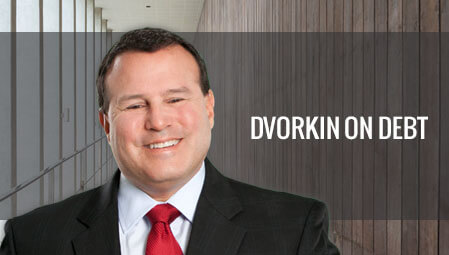A new survey raises more questions than it answers.
Earlier this month, the comparison website CreditCards.com polled more than 1,000 adults and reported the results under this dismal headline: “More Americans expect to be in debt forever.”
When the site conducted this same poll last year, 9 percent were so behind on their bills they were resigned to dying in debt. This year? That awful number doubled to 18 percent.
“Another 11 percent don’t expect to get out of debt until they’re at least in their 70s,” the poll reported.
If you believe these results — and I have some doubts, which I’ll address in a moment — then more than a quarter of Americans have simply given up on becoming debt-free. That’s depressing and just plain wrong.
Never surrender
As a CPA, financial adviser, and credit counselor for more than two decades, I’ve witnessed the most common ways Americans fall into deep debt:
- unemployment or under-employment
- divorce
- addictions (gambling, drinking, drugs)
- medical expenses
- simply living beyond one’s means
Many times, these factors mix to create an even more lethal brew. The good news is, all of these factors are temporary except for one.
Sadly, medical technology doesn’t exist to solve all health problems, and I’ve counseled many Americans who look healthy but aren’t well enough to work. Setting aside these tragic cases, which are thankfully rare, everything else on this list is conquerable, if not exactly easy.
Are you an addict? Thankfully, our society no longer shames and stigmatizes addiction as it once did. Help is literally a click away, whether it’s for gambling or alcoholism.
If you’ve been laid off and had trouble finding work, you also have online options to explore. While it’s far from ideal, many Americans have had to resort to cobbling together part-time jobs to pay their bills.
Finally, I’ve seen divorce devastate couples both emotionally and financially. Yet again, the social stigma of divorce has changed radically in two decades, and I’ve seen more men and women rebounding from divorce much quicker than in the past, with much more support from groups like Parents Without Partners.
I’m not glossing over these life-altering crises. I’m simply saying they’re not insurmountable. However, it’s the last category above that elicits zero sympathy in my heart.
If you’re spending more than you earn simply because you can, or for “shopping therapy,” or to keep up with the Joneses, or because you simply can’t be bothered with a budget — well, you literally have no one to blame but yourself.
Debt.com offers a ton of Tools & Tips on spending and saving, and so do hundreds of other websites. There’s simply no excuse for not learning how to be financially responsible.
Behind the numbers
Nothing I mentioned above is a secret. I believe most Americans know their tough money problems have solutions, even if those solutions aren’t exactly easy.
I also believe the holidays are the worst time to ask them about their finances. CreditCards.com also asked about gift-shopping and found 38 percent had already put those gifts on their credit cards.
“Of those who already have entered into holiday-related debt,” the site wrote,”74 percent expect to pay it off within three months.”
That’s a long time, but not as long as this: “About 6 percent of Americans say they will need at least four months to pay off this year’s holiday purchases; 2 percent say six months to a year; and 2 percent say more than a year.”
I have to believe any friend or family member would gladly forgo a gift if they knew you needed a year to pay off its price and the interest charges. A thoughtful card or breakfast in bed or a homemade dinner is just as meaningful — and maybe more so.
If many Americans believe they’re going to die in debt, my holiday wish is this: They learn to live debt-free in 2015.
Howard Dvorkin is a CPA and chairman of Debt.com, an educational resource for those who want to conquer all forms of debt in their lives.








